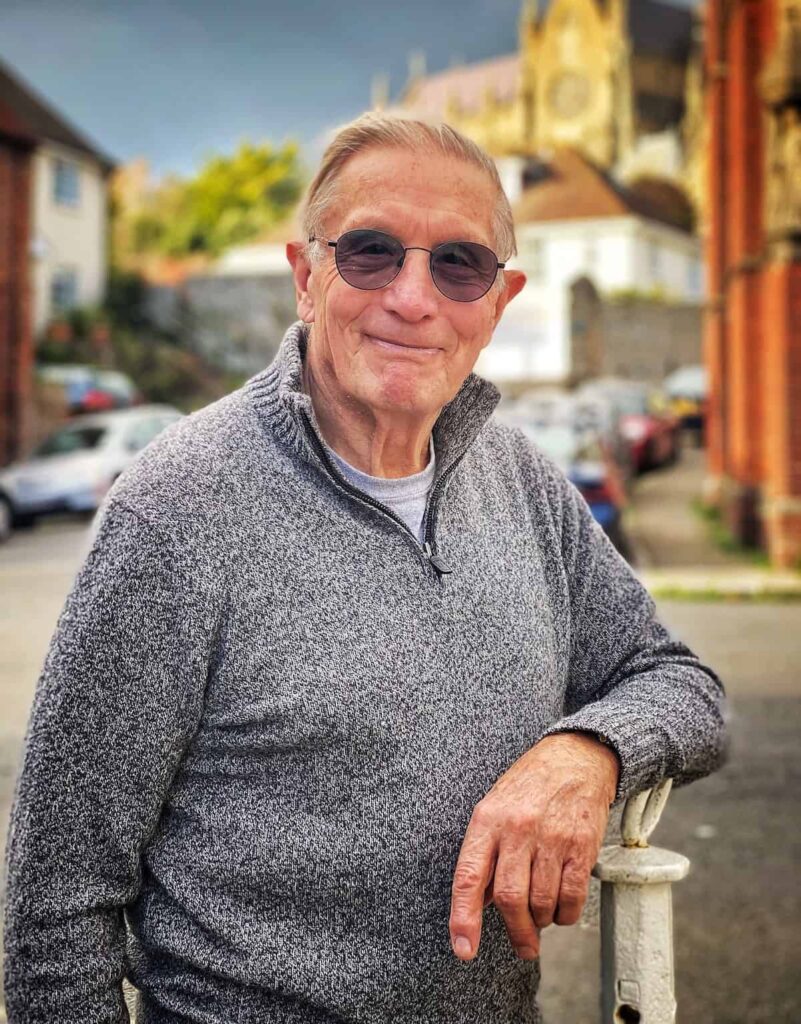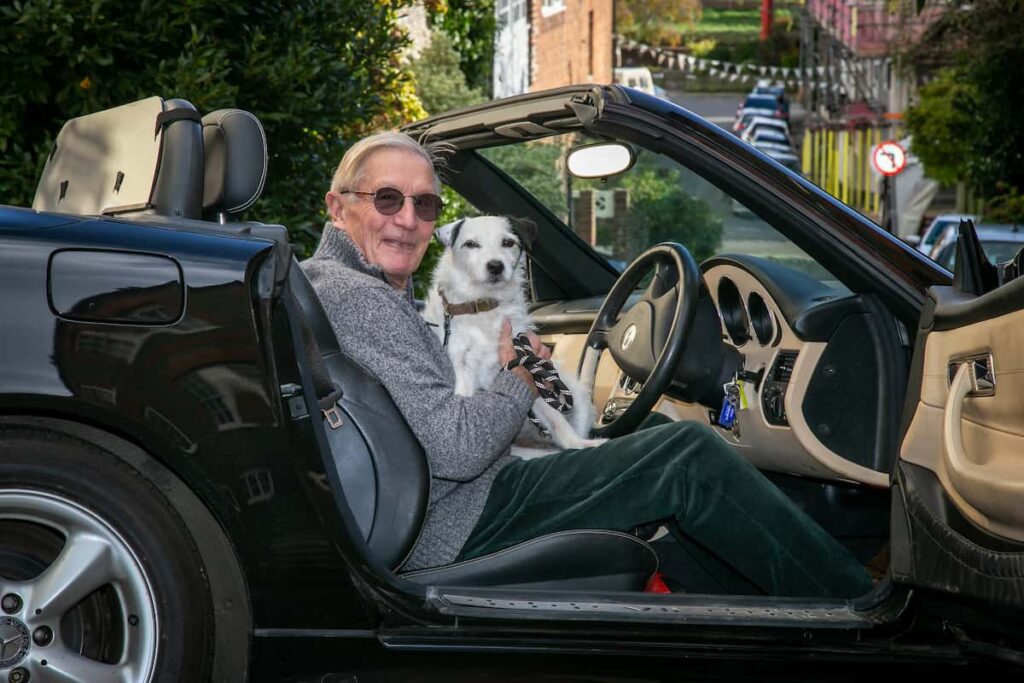Community header template
- Home
arrow_drop_down
- News
arrow_drop_down
- What’s On
- Local Information
arrow_drop_down
- Community Groups
arrow_drop_down
- Business Support
arrow_drop_down
- Advertising Rates
- Business Networks
- Akin Arundel
- Arundel Chamber of Commerce
- Consultants, Admin Support & Office Space
- Film Location & Production Support
- IT & Technical Support
- Legal, Financial Planning, Accountants And Insurance
- Local Publications And Media
- Marketing, Printing & Digital
- Business Newsletter
- Local Directory
arrow_drop_down
- Estate & Lettings Agents & Architects
- Health, Beauty & Wellbeing
- Home & Gardening Services
- Legal, Financial Planning, Accountants And Insurance
- Photographers, Fashion & Lifestyle
- Retirement, Care & Funeral Services
- Travel, Holidays & Languages
- Tradesman, Builders and Property Services
- Vehicle Repairs, Storage, Hire & Taxi Services
- Weddings, Events & Entertainment
- Contact
Profile of Colin Adams CBE AFC

Published Winter 2021, by Gill Farquharson
‘a nice bastard!’
WHEN Colin Adams left his posting as Flight Commander in a Malta-based Squadron in 1973, he was presented with a silver model of a Dghajsa, a local fishing boat, by the Groundcrew Chief. The presentation was accompanied by the words ‘The lads would like you to have this because they think you’re a bastard but you’re a nice bastard!’ Colin thinks that is ‘one of the nicest things said to me in my Service career!’
Colin’s mother was widowed in 1944. His father, a Major in the Chindits Special Forces, was killed behind the Japanese lines in Burma, although confirmation of his death only came 18 months later when his body was found. Colin and his sister Gill, who is two years older, had moved to ‘a very basic cottage in Bury – no electricity, open fires, a cooking range, paraffin heaters, water from a pump. But worst of all was the outside privy in the garden which I hated using in the dark!’ Two years later they moved to one half of Hollow Farm in Bury which was ‘luxury by comparison.’ A further move saw them settle at Tower House opposite St Nicholas Church.
At 5 Colin went to school as one of 12 pupils at the newly established Convent school (now The Priory) which had been set up for the Duke of Norfolk’s four daughters. In Colin’s view ‘the Duke decided he might as well add two or three male serfs from the hedgerows as well as the other well-bred girls!’ Although unable to fully pay the fees, Colin’s mother was determined that he should eventually go to Christ’s Hospital. The school offered a ‘presentations’ system whereby wealthy individuals could gift money to the school for the education of a child whose parents couldn’t afford it. After numerous attempts, his mother finally found a lady in the village who was a cousin of Lord Leconfield of Petworth and persuaded him to gift Colin a place. School provided Colin not just with academic opportunities. He performed in four Shakespeare plays taking two abroad; played rugby for the first XV and for Sussex under 18’s and learnt to fly an RAF funded Tiger Moth. Outside of school he was no less energetic – skiing and sailing were interspersed with summers working on the harvest at his great friend Chris Lock’s father’s farm at Blakehurst.
His RAF ambitions were initially fuelled by spending time with a friend’s family whose father was Station Commander at Tangmere, subsequently an Air Marshal and Chief of Defence Staff. The lifestyle these roles afforded seemed particularly attractive to young Colin and having won a RAF scholarship, he went to the RAF College at Cranwell in 1958 straight from school. It was a major shock on two counts. Firstly he hadn’t realised that there were steps between joining up and living as a Station Commander did! Worse, his first three years were at ‘effectively just another boarding school in
the wastes of Lincolnshire!’ He did continue his sailing career however in the College dinghy sailing team and, in the winter, competed in the modern pentathlon and played rugby. In 1961 he gained his Wings, was commissioned as a Pilot Officer and selected for Strategic Photo Reconnaissance.
Converting to Canberra aircraft, Colin’s career took off in earnest. He joined a squadron at RAF Wyton in Huntingdon and it wasn’t long before he was doing reconnaissance and mapping photography across both the UK and abroad – Khartoum, Nairobi, Southern Rhodesia (Zimbabwe), Norway and from Jamaica. It was west of Cuba where he had the avowedly scariest moment of his career. Flying very high in cloud, they hit a violent cumulonimbus storm. He recalls ‘the aircraft was buffeted up and down about 2000 feet so our heads were hitting the canopy. One of the engines stalled and then quit. Still going up and down the aircraft was hit by lightning, so much so I got a quite violent shock through the controls and then after another lightning strike, the- sensors for the pressure instruments – air speed, altitude etc – froze! Thank God for a monthly Flight Safety magazine which had recently described a Canberra having exactly this experience near Khartoum which had proved fatal.’ Colin descended very slowly and at about 9000 feet they came out of cloud. Returning to Jamaica without the pressure instruments, they taxied in with the aircraft stripped of its paint and badly damaged by the force of the hail they had flown through. He remembers that ‘for 10 days every time we saw lightning both my navigator and I started shaking uncontrollably.’ He was awarded a ‘green endorsement for an instance of exceptional flying.’ Not everything was that laudable though. He admits to responsibility ‘for bad behaviour such as dropping toilet rolls over the airfield just before Christmas, taxiing a Canberra over and into a manhole just off the main runway one dark, rainy night and giving an unauthorised lift
to a Norwegian pilot. We junior pilots all learnt how to duck our heads from the blast in the Squadron or Station Commanders office and mark the quality of the ‘bollocking’ out of 10!’
His social life was by no means on hold at this time and he added racing an Austin- Healey around Silverstone and other tracks on a number of occasions to his activities. Sailing, in larger boats, and skiing still featured but by far the most important social event was the party at which he met a young student nurse from Addenbrookes Hospital called Jo Colton who was destined in 1964 to become the long-suffering Mrs Adams (a description Colin agrees with)! ‘As I only had seven shillings and sixpence to my name, she has never stopped reminding me that she had to buy her own wedding ring!’ Jo joined him in Singapore where he had been posted a few months after the wedding, and they eventually settled down in a ‘neat little bungalow just outside of the city’. Their two daughters were born there, ‘Sophie the eldest learning to speak more Chinese than English from her Chinese amah, Poon.’ Although Jo couldn’t pursue her role as a Theatre Sister when they were abroad, she did return to her career when they returned to the UK.
This was the time of a particularly aggressive confrontation in Borneo and there were armed incursions in Malaya by the Chinese backed dictator Sukarno. There was also a potential threat to Singapore. Colin was kept very busy on reconnaissance flights over Malaysia, Indonesia, Hong Kong and the South Pacific. This was a very happy time for them with an active social life and lovely country to explore. They were summoned back to the UK though and reluctantly returned where Colin was enrolled in a Flying Instructors course from which he graduated with the much prized De Havilland Trophy for Aerobatics. It nearly ended in disaster when ‘I and others were nearly sacked for introducing a stripper at the end of the graduating guest night dinner’ – this told as always with Colin’s irrepressible, shoulder shaking chuckle!
After a brief spell as ADC to an Air Marshal, the Commandment of the Staff College, he was promoted to Squadron Leader at only 30, and he and Jo were off again this time to RAF Luqa in Malta where Colin became Flight Commander of a Canberra Recce Squadron. Primarily he operated over the Mediterranean and the Middle East. ‘With an undeclared war between Chinese backed South Yemen and Oman, we were regularly flying in the Dhofar Border area,’ plus detachments to Africa and Hong Kong. It was towards the end of this posting that Colin was awarded a ‘Command’ category, the highest accolade, one of only two in the RAF Middle East Air Force. He subsequently was also awarded an Airforce Cross for his reconnaissance work.
Returning to the UK in 1974, Colin spent time at the Naval Staff College at Greenwich on an exchange programme. Two years as a Staff Officer at RAF Flying Training HQ followed but he was delighted when his next posting was to Munich on the Tornado Aircraft Development team, along with promotion to Wing Commander. Three happy years followed running a team of ‘15 Brits, Germans and Italians – a heady mix’ overseeing the three countries’ aircraft building industries. This was a great time – being paid in Deutschmarks, skiing all winter and every Friday at cease work, our team drank Sekt German ‘champagne’ to commemorate famous battles fought by the three nations with the losers (mainly the Italians), paying the bill!
Return to the UK this time saw him in command of another recce squadron, no 39 at Wyton, where the retelling of his naughtier escapades in the sixties were still remembered! One more squadron command was followed by a promotion and complete change of role as Group Captain at the Personnel Management Centre RAF Innsworth in Gloucester. Although loving the role of responsibility for the careers and appointments of all officer aircrew, air traffic and Fighter Controllers, he and Jo had by now bought a house in Walberton and Colin hated the weekly commute.
It was two years before he was released from commuting with a posting to RAF Akrotiri in Cyprus as Commanding Officer. Over a thousand service personnel and dependents plus local staff under his command kept Colin on his toes. Despite the seeming holiday atmosphere, there were constant dramas during Colin’s tenure – a Lebanon based terrorist attack in revenge for US attacks on Tripoli; a potential hi-jacked Kuwaiti airliner; a plague of wild cats; major bush fires; Royal visits; parliamentary delegations and visiting celebrities such as Dame Vera Lynn and the artist David Shepherd. There were flying related tragedies and civilian issues to handle issues. Now he reflects, ‘We both got through it all with Jo’s very demanding role there particularly being of enormous importance- although naturally unpaid!’
After three good years in Akrotiri ‘I was horrified by my next appointment at the Ministry of Defence, looking after the RAF Estate Worldwide.’ Fortunately he didn’t have to endure for long before he got a call from an old colleague now responsible for postings to say he was leaving the MOD and again being promoted. ‘He offered me a choice- did I want to go to Paris or Moscow as Defence Attaché? My reply was ‘What a bloody silly question!’. We were off to Paris!’
The four years they spent in the Paris Embassy were one of their top two postings – Akrotiri being the other. Despite having claimed to speak ‘average’ French, Colin had to do a crash course and start from scratch. He soon managed to interpret for visiting Defence Ministers such as Malcom Rifkind, Tom King and Alan Clarke. His role was multi-faceted and entailed him working very closely with his FCO colleagues, senior civil servants and military staff. He knew and flew from bases all over France especially where British officers were on exchange, plus he had to accompany the most senior French on their visits to the UK. It was an exceptionally busy appointment but there were compensations. Jo and he lived in a smart 6th Floor apartment in the 16th overlooking the Bois de Boulogne. They enjoyed the best of Parisian life and made many good friends. One highlight he recounts with glee was a dinner at the Elysée Palace for a Royal visit by the Queen. ‘I found myself sitting next to Catherine Deneuve, Charlotte Rampling and her husband Jean-Paul Jarre’
The posting ended in 1994 having been extended for two years at the FCO’s request. The French gave him a farewell present of a final flight ‘with three French Generals in an executive jet to Orange and then jumping into four Mirage 2000’s for low level combat around the Massif Central!’ The French also gave him a gold medal for getting into a crashed, burning car by the back window just before it exploded and pulling out the very drunk driver – with Jo shouting in the background ‘Don’t do anything stupid!’. Pol Roger’s President presented them a dozen bottles of champagne and to cap it all, the Ambassador had recommended him for a CBE.
Unbelievably at 55 Colin found himself retired from the services, ‘but to me it was anathema. I set out to get a good job’ and found one as Chief Executive of the consultants organisation BCB. The role was to help some 400 member firms, who were all consultancies from across the spectrum to win work internationally.
‘We identified projects, fed them to members and ensured the conditions were met for them especially in terms of funding, governmental support and payment. It involved trade missions all over the world and sometimes ‘discussions’, read arguments, with governments and International Aid Agencies.’ During his time they also became directly involved in all the major post-war reconstructions – Kosovo, Serbia post Milosevic, Iraq and Afghanistan.
At 65 Colin felt ‘like getting more sailing and leisure time’ so left BCB, though with regret. However he spent the next ten years on various consulting projects for clients as diverse as a Lloyds Broker, a Northern Irish construction company, an international law firm and even a Chinese State Construction Company who after a year’s work, never paid him! In 2015, aged 75, he finally accepted almost total retirement save for continuing on the board of the service charity, The Union Jack Club, which post he held for 20 years in total.
Colin and Jo had bought their current house at the top of Kings Arms Hill when they returned from Paris in 1995. They also acquired a 34ft Jeanneau sailing boat moored in Dartmouth, which has been followed by two replacements, both moored in Brittany. Jo meantime had started to take her artistic talent seriously completing both a foundation course and a printmakers course – ‘It remains her abiding passion rather than me!’ he chuckles. Their time is split between sailing, visiting Canada, where coincidentally his son Nick and daughter Pip live, and other activities such as skiing. Eleven grandchildren, spread across the UK and Western Canada, make for excellent holidays!
When he’s not travelling these days, Colin tends his allotment opposite the site of his old school and on his own admission ‘acts like Victor Meldrew!’
Photography by Nigel Cull

